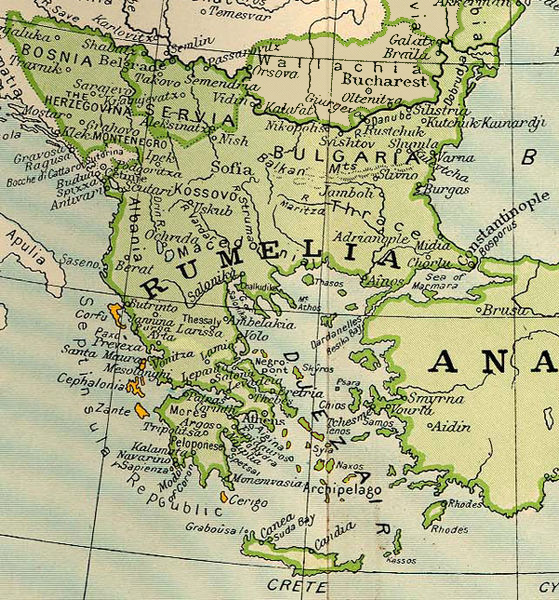|
Hatt-i Sherif
Hatt-i humayun ( ota, خط همايون , plural , ), also known as hatt-i sharif ( , plural , ), was the diplomatics term for a document or handwritten note of an official nature composed by an Ottoman sultan. These notes were commonly written by the sultan personally, although they could also be transcribed by a palace scribe. They were written usually in response to, and directly on, a document submitted to the sultan by the grand vizier or another officer of the Ottoman government. Thus, they could be approvals or denials of a letter of petition, acknowledgements of a report, grants of permission for a request, an annotation to a decree, or other government documents. Hatt-i humayuns could also be composed from scratch, rather than as a response to an existing document. After the Tanzimat era (1839–1876), aimed at modernizing the Ottoman Empire, hatt-i humayuns of the routine kind were supplanted by the practice of irade-i seniyye ( ota, اراده سنیه ; french: ira ... [...More Info...] [...Related Items...] OR: [Wikipedia] [Google] [Baidu] |
Arabic Language
Arabic (, ' ; , ' or ) is a Semitic language spoken primarily across the Arab world.Semitic languages: an international handbook / edited by Stefan Weninger; in collaboration with Geoffrey Khan, Michael P. Streck, Janet C. E.Watson; Walter de Gruyter GmbH & Co. KG, Berlin/Boston, 2011. Having emerged in the 1st century, it is named after the Arab people; the term "Arab" was initially used to describe those living in the Arabian Peninsula, as perceived by geographers from ancient Greece. Since the 7th century, Arabic has been characterized by diglossia, with an opposition between a standard prestige language—i.e., Literary Arabic: Modern Standard Arabic (MSA) or Classical Arabic—and diverse vernacular varieties, which serve as mother tongues. Colloquial dialects vary significantly from MSA, impeding mutual intelligibility. MSA is only acquired through formal education and is not spoken natively. It is the language of literature, official documents, and formal written m ... [...More Info...] [...Related Items...] OR: [Wikipedia] [Google] [Baidu] |
Rumeli
Rumelia ( ota, روم ايلى, Rum İli; tr, Rumeli; el, Ρωμυλία), etymologically "Land of the Romans", at the time meaning Eastern Orthodox Christians and more specifically Christians from the Byzantine rite, was the name of a historical region in Southeastern Europe that was administered by the Ottoman Empire, corresponding to the Balkans. In its wider sense, it was used to refer to all Ottoman possessions and vassals in Europe that would later be geopolitically classified as "the Balkans". During the period of its existence, it was more often known in English as Turkey in Europe. Etymology ''Rûm'' in this context means "Greek", or a Christian Greek speaker and ''ėli'' means "land" and ''Rumelia'' ( ota, روم ايلى, ''Rūm-ėli''; Turkish: ''Rumeli'') means "Land of the Romans" in Ottoman Turkish. It refers to the lands conquered by the Ottoman Empire in the Balkans, which formerly belonged to the Byzantine Empire, known by its contemporaries as the Roman ... [...More Info...] [...Related Items...] OR: [Wikipedia] [Google] [Baidu] |
Beylerbey
''Beylerbey'' ( ota, بكلربكی, beylerbeyi, lit=bey of beys, meaning the 'commander of commanders' or 'lord of lords') was a high rank in the western Islamic world in the late Middle Ages and early modern period, from the Anatolian Seljuks and the Ilkhanids to Safavid Empire and the Ottoman Empire. Initially designating a commander-in-chief, it eventually came to be held by senior provincial governors. In Ottoman usage, where the rank survived the longest, it designated the governors-general of some of the largest and most important provinces, although in later centuries it became devalued into a mere honorific title. Its equivalents in Arabic were ''amir al-umara'', and in Persian, ''mir-i miran''. Early use The title originated with the Seljuqs, and was used in the Sultanate of Rum initially as an alternative for the Arabic title of ''malik al-umara'' ("chief of the commanders"), designating the army's commander-in-chief. Among the Mongols, Mongol Ilkhanids, the title ... [...More Info...] [...Related Items...] OR: [Wikipedia] [Google] [Baidu] |
Kapudan-i Derya
The Kapudan Pasha ( ota, قپودان پاشا, modern Turkish: ), was the Grand Admiral of the navy of the Ottoman Empire. He was also known as the ( ota, قپودان دریا, links=no, modern: , "Captain of the Sea"). Typically, he was based at Galata and Gallipoli during the winter and charged with annual sailings during the summer months. The title of ''Kapudan Pasha'' itself is only attested from 1567 onwards; earlier designations for the supreme commander of the fleet include ("bey of the sea") and ("head captain"). The title ''Derya Bey'' was first granted during the reign of Bayezid I as an official rank within the state structure. Following the Conquest of Constantinople, Mehmet II raised Baltaoğlu Süleyman Bey to the status of sanjak bey for his efforts against the Byzantines in the Golden Horn.Shaw, Stanford J. History of the Ottoman Empire and Modern Turkey', Vol. 1, pp. 131 ff. Cambridge University Press (Cambridge), 1976. Accessed 12 Sept 2011. Baltaoğlu rec ... [...More Info...] [...Related Items...] OR: [Wikipedia] [Google] [Baidu] |
Kaymakam
Kaymakam, also known by many other romanizations, was a title used by various officials of the Ottoman Empire, including acting grand viziers, governors of provincial sanjaks, and administrators of district kazas. The title has been retained and is sometimes used without translation for provincial or subdistrict governors in various Ottoman successor states, including the Republic of Turkey, Northern Cyprus, Iraq, and Lebanon. Names The title has been romanization, romanized in English language, English since 1645 with extremely numerous spelling variations. The most common present-day forms are kaymakam, kaimakam, and qaimaqam. The modern Turkish language, Turkish term is , from Ottoman Turkish ''kaymakam'' (), from Arabic language, Arabic ''qāʾim maqām'' (), meaning "stand in" or "deputy". History Ottoman Empire In the Ottoman Empire, the title of ''kaymakam'' (known either as ''sadâret kaymakamı'' or as ''kaymakam pasha'') was originally used for the official depu ... [...More Info...] [...Related Items...] OR: [Wikipedia] [Google] [Baidu] |



.png)

